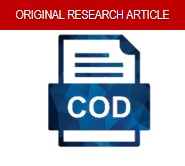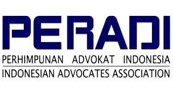The Legal Force of Article 1977 of the Indonesian Civil Code Regarding Ownership of Unregistered Movable Property
DOI:
https://doi.org/10.46924/jihk.v7i2.332Keywords:
Binding force, Article 1977 of the Civil Code, Movable property, TechnologyAbstract
Technological and socio-economic developments have generated significant challenges for the application of Article 1977 of the Indonesian Civil Code (Burgerlijk Wetboek/BW), which governs ownership of unnamed movable property. Normatively, this provision stipulates that possession is deemed equivalent to ownership. However, in practice, difficulties arise in relation to modern electronic devices such as mobile phones and laptops, which can be uniquely identified through IMEI codes or serial numbers. This study examines the binding force of Article 1977 of the Civil Code, explores the legal issues associated with the ownership of unnamed movable property, and evaluates the provision’s relevance within the contemporary socio-economic and technological context. The research employs a normative juridical approach, supported by doctrinal analysis, statutory interpretation, and review of empirical literature on movable property ownership. Findings reveal that, although Article 1977 continues to provide formal legal certainty, it fails to adequately address technological advancements. Accordingly, the integration of digital identification mechanisms is essential to ensure substantive justice and safeguard property rights.
Downloads
References
Journals
Fatah, Reino Rizkillah, Basri Basri, Yulia Kurniaty, and Hary Abdul Hakim. “Pertanggungjawaban Tindak Pidana Doxing Oleh Debt Collector Pinjaman Online Dalam Penagihan Hutang Nasabah.” Borobudur Law and Society Journal 3, no. 2 (2024): 43–51. https://doi.org/10.31603/11708.
Husamuddin, Husamuddin. “Hifzh Al-‘Irḍ Dalam Transformasi Sosial Modern: Upaya Menjadikan Hifzhu Al-‘Irḍ Sebagai Maqāshid Al-Dharūrīy.” At-Tasyri’: Jurnal Ilmiah Prodi Muamalah 11, no. 2 (2019): 119–32. https://doi.org/10.47498/tasyri.v11i2.298.
Madjid, Abdul Gani. “Pandangan Hukum Atas Ancaman Debt Collector Pinjaman Online Yang Akan Menyebarluaskan Data Pribadi.” Jurnal Hukum Ius Publicum 6, no. 1 (2025): 84–93. https://doi.org/10.55551/jip.v6i1.274.
Muttaqi, Nabila Ihza Nur, and Muhammad Subhan. “Perlindungan Hukum Bagi Korban Penyebaran Data Pribadi Oleh Penyedia Jasa Pinjaman Online Illegal Dalam Perspektif Viktimologi.” Delicti: Jurnal Hukum Pidana Dan Kriminologi 2, no. 1 (2024): 28–41. https://doi.org/10.25077/delicti.v.2.i.1.p.28-41.2024.
Najwan, Gibran Aufa, and Albertus Sentot Sudarwanto. “Perlindungan Hukum Terhadap Data Pribadi Peminjam Yang Disalahgunakan Oleh Layanan Pinjaman Online Ilegal.” Jurnal Pendidikan Tambusai 8, no. 2 (2024): 17115–17132. https://doi.org/10.31004/jptam.v8i2.14778.
Permadi, Sandro Wahyu, and Saiful Bahri. “Tinjauan Yuridis Penagihan Hutang Dengan Penyebaran Data Diri Di Media Sosial.” Jurnal Hukum Ius Quia Iustum 29, no. 1 (2022): 24–46. https://doi.org/10.20885/iustum.vol29.iss1.art2.
Pramudita, Amanda Cahaya. “Perlindungan Hukum Bagi Korban Penyebaran Data Pribadi Oleh Pelaku Debt Colletor Pinjaman Online.” Jurnal Ilmiah Advokasi 13, no. 2 (2025): 325–36. https://doi.org/10.36987/jiad.v13i2.7104.
Ramadani, Eko Wahyu, Rustam Rustam, and Riza Fibriani. “Kejahatan Siber Dengan Metode DDOS Attack Terhadap Website Dalam Perspektif Fiqih Jinayah.” Jurnal Hukum Lex Generalis 6, no. 2 (2025): 1–16. https://doi.org/10.56370/jhlg.v6i2.765.
Ratnayutika, Ni Putu, Nikmatul Keumala Nofa Yuwono, Ana Laela Fatikhatul Choiriyah, and Tri Dharma Putra. “Perlindungan Hukum Terhadap Korban Desk Collector Fintech Ilegal.” Lex Et Lustitia 1, no. 2 (2024): 61–69. https://doi.org/10.70079/lel.v1i2.69.
Satria, Muhammad Kamarulzaman, and Hudi Yusuf. “Analisis Yuridis Tindakan Kriminal Doxing Ditinjau Berdasarkan Undang Undang Nomor 27 Tahun 2022 Tentang Perlindungan Data Pribadi.” Jurnal Intelek Dan Cendikiawan Nusantara 1, no. 2 (2024): 2442–56. https://jicnusantara.com/index.php/jicn/article/view/266.
Simanjuntak, Predderics Hockop. “Perlindungan Hukum Terhadap Data Pribadi Pada Era Digital Di Indonesia: Studi Undang - Undang Perlindungan Data Pribadi Dan General Data Protection Regulation (GDPR).” Jurnal Esensi Hukum 6, no. 2 (2024): 105–24. https://doi.org/10.35586/jsh.v6i2.412.
Sodiqin, Ali. “Positifikasi Hukum Islam Di Indonesia: Prospek Dan Problematikanya.” Supremasi Hukum 1, no. 2 (2012): 445–62. https://doi.org/10.14421/sh.v1i2.1922.
Syarbaini, Ahmad. “Konsep Ta’zir Menurut Perspektif Hukum Pidana Islam.” Jurnal Tahqiqa: Jurnal Pemikiran Hukum Islam 17, no. 2 (2023): 37–48. https://doi.org/10.61393/tahqiqa.v17i2.167.
Violina, Delfa, and Renny Supriyatni. “Perlindungan Hukum Terhadap Konsumen Pengguna Teknologi Finansial Berbasis Peer to Peer Lending Syariah Di Indonesia.” Ajudikasi: Jurnal Ilmu Hukum 5, no. 1 (2021): 17–34. https://doi.org/10.30656/ajudikasi.v5i1.3267.
Wulandari, Chindy, Saipul Azis, Wahyuni Lely Augusna, and Rozalinda Rozalinda. “Problematika Profesi Debt Collector Menurut Pandangan Islam.” Journal of Economic, Business and Engineering 5, no. 2 (2024): 360–66. https://doi.org/10.32505/muamalat.v10i1.11378.
Proceedings
Nurhalifah, Dita. “Pertanggungjawaban Pidana Debt Collector Dan Korporasi: Tinjauan Terhadap Pelanggaran Hukum Dalam Penagihan Hutang.” In Proceedings Series on Social Sciences & Humanities, 17:50–57. Purwokerto: Universitas Muhammadiyah Purwokerto, 2024. https://doi.org/10.30595/pssh.v17i.1105.
Web Pages
Alfiansyah, Alfiansyah. “Coba Rampas Mobil Yang Pemiliknya Sudah Meninggal Dunia, Sejumlah Debt Colector Di Kota Medan Dipolisikan.” tvonenews.com, 2025. https://www.tvonenews.com/daerah/sumatera/308888-coba-rampas-mobil-yang-pemiliknya-sudah-meninggal-dunia-sejumlah-debt-colector-di-kota-medan-dipolisikan.
Tuntas Online. “Data Pribadi Disebar, Nasabah Pinjol Lapor Polisi.” Tuntas Online, 2022. https://tuntasonline.id/data-pribadi-disebar-nasabah-pinjol-lapor-polisi?
Downloads
Published
Issue
Section
License
Copyright (c) 2025 Muhammad Yunus Abdi, Ramadani Ramadani

This work is licensed under a Creative Commons Attribution 4.0 International License.
Authors who publish with this journal agree to the following terms:
- Copyright on any article is retained by the author(s).
- The author grants the journal, the right of first publication with the work simultaneously licensed under a Creative Commons Attribution License that allows others to share the work with an acknowledgment of the work’s authorship and initial publication in this journal.
- Authors are able to enter into separate, additional contractual arrangements for the non-exclusive distribution of the journal’s published version of the work (e.g., post it to an institutional repository or publish it in a book), with an acknowledgment of its initial publication in this journal.
- Authors are permitted and encouraged to post their work online (e.g., in institutional repositories or on their website) prior to and during the submission process, as it can lead to productive exchanges, as well as earlier and greater citation of published work.
- The article and any associated published material is distributed under the Creative Commons Attribution 4.0 International License



 Sinta ID:
Sinta ID: 


















